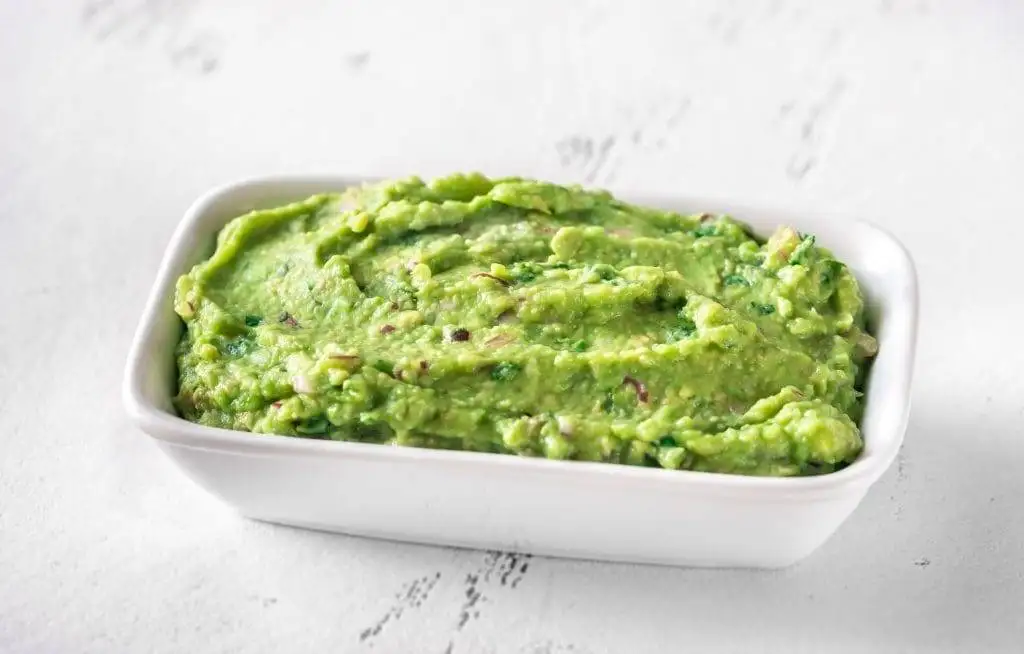Can You Freeze Ricotta Cheese?

Ricotta cheese is nothing short of an Italian fairytale. It is one of those cheeses that blends in well with your savory ravioli and even with the sweet cannolis. The creamy and decadent taste and texture make people want more and more of this. But sourcing ricotta cheese is not always possible.
Its availability depends on the place you are in, but still, finding some fresh ricotta can be a struggle. So, the next question comes in people’s minds, “Can you freeze ricotta cheese?”
Freezing cheeses is quite a common thing that helps improve the shelf life of the cheese. It lets you enjoy your favorite cheese without any worry about running out of it. Similarly, frozen ricotta can sound weird and impossible, mainly because of the texture of the cheese; however, to be honest, it is quite possible. Is it simple to freeze goat cheese?
Know a Little More About Ricotta Cheese
Before we delve into the process of freezing ricotta cheese, let us know a little more about it. Ricotta is a famous soft Italian cheese that is made from cow’s milk or skim milk.
The one unique thing about this cheese is the process it is made in. Instead of starting the process with a whole new batch of cow’s milk, it starts with the whey left from making mozzarella.
Milk is added to the whey following which the rennet is added, and the milk is curdled. The cheese has a mildly sweet taste to it and a very smooth texture. In comparison to cottage cheese, this one has a much smoother texture to it.
The cheese derives its name from an Italian word, which means “cooked twice,” which is precisely what happens. Even though the texture of the ricotta cheese is very smooth and creamy, a sign of good ricotta is a firm exterior. It should also contain fine and moist granules inside, which further marks the quality of the product.
It is used in a variety of dishes – both sweet and savory.
Can You Freeze Ricotta Cheese?
When it comes to answering whether or not it is possible to freeze ricotta cheese, the answer is yes. It can be frozen without any complaints.
Some of the expert cheesemakers have said that while freezing ricotta cheese is possible, it can be done for nothing more than 2 months. But, the freezing process comes with a downside. It affects and might alter the texture of the cheese.
When you freeze the ricotta cheese, you will find some of the water seeping out of the sides when you defrost it. Some like to throw the water away while some tend to mix it back into the cheese. The decision is yours.
Since the texture of the cheese changes quite drastically, most experts suggest freezing it if you are using it for cooking later. Eating it raw won’t be that much fun anymore.
What Can One Do About the Change in Texture?
Since freezing ricotta cheese leaves a peculiar texture, it is likely you might ask how that can be fixed.
The best way to revive somewhat of the texture of the cheese is by stirring it consistently while you are thawing it. It allows you to smoothen out the crumbly texture, helping restore some of it.
But, we would still suggest that you do focus on using it for cooking purposes and not for your salads.
How to Freeze Ricotta Cheese?
Now that you more or less know about the basics of freezing ricotta cheese, it is time we focus on how the same is done.
It is not as easy as chucking it inside the freezer. There are some tips that you need to keep in mind for smoother freezing of the cheese.
Did you know that apart from ricotta cheese, there is a complete process of freezing string cheese?
To help you, we are going to section the process into several ways that you can choose from as per your convenience.
How to Freeze Readymade Ricotta Cheese?
When you are buying ricotta cheese from the supermarket, those are already packed and sealed in a container. In case you haven’t opened the cheese, you can directly chuck the container inside the freezer.
Follow these steps to freeze and store your ricotta cheese.
- If you are planning on eating it for a few months, store it in small airtight containers.
- Portioning out the cheese and storing it in separate small containers allow you to take out one container at a time instead of pulling out the entire tray of ricotta
- Consistent exposure to the air can reduce the shelf-life
- So, the best way to freeze the readymade ricotta cheese is to freeze them in smaller containers with individual portions
How Long Does Ricotta Cheese Last in the Freezer?
Now that you know a little about the freezing process, we need to talk about the packaging.
The process is not rocket science, but you need to be resourceful. One of the most important things to do is to buy a few airtight containers.
When it comes to packaging your fresh ricotta cheese for freezing, you need to rely on airtight containers. The insulated containers work the best. It seals in any outside moisture, ensuring to keep your cheese fresh while you are freezing it.
Why is Stirring Ricotta Cheese Necessary Before Freezing?
You might not realize this, but stirring and putting pressure is part of freezing the ricotta. This ensures that your cheese has an even consistency and doesn’t have an excessively grainy texture.
Putting pressure with a clean and dry kitchen towel helps keep the smoothness of the cheese intact, which again is pretty amazing. This helps draw out the excess whey from the cheese to prevent affecting the texture of the cheese.
Doing this leaves you with a smooth and creamy texture of the cheese, even if it is frozen.
Is It Necessary to Mark the Container of the Frozen Ricotta Cheese?
Frozen ricotta lasts for 3 months.
So, in case you don’t keep track, marking the container with a permanent market helps you know how long the cheese will last.
The last thing you want is to eat moldy cheese that is not good for your health.
You should not freeze ricotta cheese beyond 3 months because that can end up causing food poisoning, and that’s the last thing on your mind.
What are Some Other Packaging Tips for Freezing Fresh Ricotta?
Aside from the little knick-knacks that we have mentioned above, there are some other amazing tips that you can check out when it comes to the freezing process.
For your convenience, you can store the cheese in smaller containers and then freeze them. It allows you to take out each box and thaw it separately instead of doing it every time that you want to eat the cheese.
Aside from that, you can even use plastic wrap or freezer bags for this. They are easily accessible and make it a lot easier to freeze the cheese without any hassle.
Once you have packed it inside the plastic wrap, you need to freeze it inside an airtight container to keep the cheese as fresh as possible.
How to Thaw Frozen Ricotta?
More than freezing the ricotta cheese, you need to keep an eye out on the thawing process. If you don’t thaw it the right way, you will be left with a poorly textured piece of ricotta.
The thawed ricotta cheese needs to follow through some steps before you can eat it.
Some of the thawing tips that you need to keep in mind include:
- Avoid thawing the ricotta at room temperature. It is essential that you take the cheese out of the freezer and then keep it in the fridge for 5-6 hours and then take it out of the refrigerator. The reason why thawing the cheese at room temperature is considered bad is because it enhances the risks of bacterial contamination.
- Avoid re-frosting the thawed cheese. Once you defrost the cheese, it will remain in the best condition for a day or two. Instead of chucking it back inside the freezer, you must use it up. If you can’t use the entire thing, store them in smaller containers, and use one of them instead of the whole thing.
How Long Does Ricotta Cheese Last in the Freezer?
Ricotta Cheese stays fresh in the freezer for up to 3 months, depending on how you freeze them. If you freeze the cheese in small chunks and use individual containers, they will last longer. But, if you freeze the entire block of cheese and take it off the freezer every once in a while, it might not last that long.
Can You Freeze Ricotta and Spinach Mixture?

Yes, it is possible for you to freeze ricotta and spinach mixture. Just ensure that you avoid putting extra salt in it. Just freeze the mixture as it is, preferably in smaller batches instead of bigger portions. Try to use it up as quickly as possible instead of leaving it in the freezer for longer than it’s needed.
DIY Homemade Ricotta Cheese
Can you freeze ricotta cheese? Yes, you can.
But, nothing beats the cheese’s freshness, not to mention how amazing the texture is.
So, in case you can’t get your hands on the ricotta cheese in the supermarket close to you, why not make it in your home?
The process is simple, and you don’t even need a plethora of ingredients.
- Start by taking 1 gallon of whey and the same amount of cow’s milk or skim milk.
- Mix them both in a pot or a double boiler, if you have that big of a vessel.
- Always keep a check on the temperature and heat the mixture till it reaches 195 degrees Fahrenheit. Make sure that you are constantly stirring the mixture to avoid any kind of burning or sticking.
- Once your mixture has reached the optimal temperature, take it off the heat and add a cup of vinegar and stir it gently. The milk will start to curdle.
- Take a colander or even a vessel with holes in it and line it with a filter or muslin cloth. Pass the curdled mixture through the colander so that the excess whey is drained out.
- Leave the curdled ricotta inside the colander for an hour or more, if you want it less creamy and firmer.
- Once you get the desired consistency, add salt as per your taste and mix everything in.
- Store it in an airtight container and use it as you wish.
Conclusion
If you have been looking for ways to freeze ricotta cheese, we hope this gives you a basic idea into the process. Always consider your usage requirements and store according to the amount you’ll need. In case you don’t enjoy the texture and taste of the frozen ricotta, you can always make some at home, as already mentioned.




